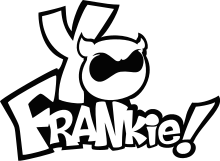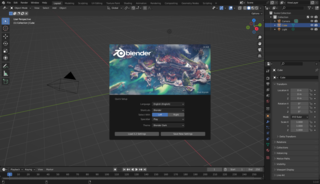
Blender is a free and open-source 3D computer graphics software tool set used for creating animated films, visual effects, art, 3D-printed models, motion graphics, interactive 3D applications, virtual reality, and, formerly, video games. Blender's features include 3D modelling, UV mapping, texturing, digital drawing, raster graphics editing, rigging and skinning, fluid and smoke simulation, particle simulation, soft body simulation, sculpting, animation, match moving, rendering, motion graphics, video editing, and compositing.

Crystal Space is an unmaintained framework for developing 3D applications written in C++ by Jorrit Tyberghein and others. The first public release was on August 26, 1997. It is typically used as a game engine but the framework is more general and can be used for any kind of 3D visualization. It is very portable and runs on Microsoft Windows, Linux, UNIX, and Mac OS X. It is also free and open-source software, licensed under the GNU LGPL-2.0-or-later, and was SourceForge.net's Project of the Month for February 2003. In 2019, one of the project's main developers described it as "effectively dead and has been for a good number of years".

CryEngine is a game engine designed by the German game developer Crytek. It has been used in all of their titles with the initial version being used in Far Cry, and continues to be updated to support new consoles and hardware for their games. It has also been used for many third-party games under Crytek's licensing scheme, including Sniper: Ghost Warrior 2 and SNOW. Warhorse Studios uses a modified version of the engine for their medieval RPG Kingdom Come: Deliverance. Ubisoft maintains an in-house, heavily modified version of CryEngine from the original Far Cry called the Dunia Engine, which is used in their later iterations of the Far Cry series.
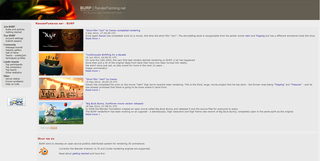
Big and Ugly Rendering Project (BURP) is a non-commercial volunteer computing project using the BOINC framework for the rendering of 3D graphics that has been in hibernation as of 2020. The project website currently shows the status as "extended maintenance" until 2027.

The Blender Foundation is a Dutch nonprofit organization (Stichting) responsible for the development of Blender, an open source 3D content-creation program.

The Blender Game Engine was a free and open-source 3D production suite used for making real-time interactive content. It was previously embedded within Blender, but support for it was dropped in 2019, with the release of Blender 2.8. The game engine was written from scratch in C++ as a mostly independent component, and includes support for features such as Python scripting and OpenAL 3D sound.

Musix GNU+Linux is a discontinued live CD and DVD Linux distribution for the IA-32 processor family based on Debian. It contained a collection of software for audio production, graphic design, video editing and general purpose applications. The initiator and co-director of the project was Marcos Germán Guglielmetti.
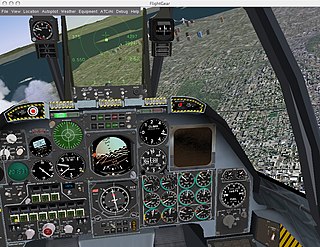
An open-source video game, or simply an open-source game, is a video game whose source code is open-source. They are often freely distributable and sometimes cross-platform compatible.
Apricot is a fruit from several tree species in family Rosaceae, and the trees that bear them.
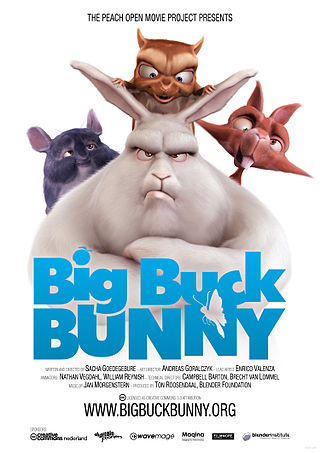
Big Buck Bunny is a 2008 short computer-animated comedy film featuring animals of the forest, made by the Blender Institute, part of the Blender Foundation. Like the foundation's previous film, Elephants Dream, the film was made using Blender, a free and open-source software application for 3D computer modeling and animation developed by the same foundation. Unlike that earlier project, the tone and visuals departed from a cryptic story and dark visuals to one of comedy, cartoons, and light-heartedness.

Ton Roosendaal is a Dutch software developer and film producer. He is known as the original creator of the open-source 3D creation suite Blender and Traces. He is also known as the founder and chairman of the Blender Foundation, and for pioneering large scale open-content projects. In 2007, he established the Blender Institute in Amsterdam, where he works on coordinating Blender development, publishing manuals and DVD training, and organizing 3D animation and game projects.

The GNU General Public License is a series of widely used free software licenses that guarantee end users the four freedoms to run, study, share, and modify the software. The license was the first copyleft for general use and was originally written by the founder of the Free Software Foundation (FSF), Richard Stallman, for the GNU Project. The license grants the recipients of a computer program the rights of the Free Software Definition. These GPL series are all copyleft licenses, which means that any derivative work must be distributed under the same or equivalent license terms. It is more restrictive than the Lesser General Public License and even further distinct from the more widely used permissive software licenses BSD, MIT, and Apache.

Sintel, code-named Project Durian during production, is a 2010 computer-animated fantasy short film. It was the third Blender "open movie". It was produced by Ton Roosendaal, chairman of the Blender Foundation, written by Esther Wouda, directed by Colin Levy, at the time an artist at Pixar and art direction by David Revoy, who is known for Pepper&Carrot an open source webcomic series. It was made at the Blender Institute, part of the Blender Foundation. The plot follows the character, Sintel, who is tracking down her pet Scales, a dragon. Just like the other Blender "open movies," the film was made using Blender, a free and open source software application for animation, created and supported by the Blender Foundation.
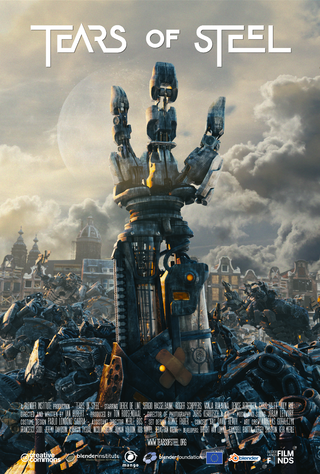
Tears of Steel is a short science fiction film by producer Ton Roosendaal and director/writer Ian Hubert. The film is both live-action and CGI; it was made using new enhancements to the visual effects capabilities of Blender, a free and open-source 3D computer graphics app. Set in a dystopian future, the short film features a group of warriors and scientists who gather at the Oude Kerk in Amsterdam in a desperate attempt to save the world from destructive robots.
Besides the Linux distributions designed for general-purpose use on desktops and servers, distributions may be specialized for different purposes including computer architecture support, embedded systems, stability, security, localization to a specific region or language, targeting of specific user groups, support for real-time applications, or commitment to a given desktop environment. Furthermore, some distributions deliberately include only free software. As of 2015, over four hundred Linux distributions are actively developed, with about a dozen distributions being most popular for general-purpose use.

Godot (/ˈɡɒdoʊ/) is a cross-platform, free and open-source game engine released under the MIT license. It was initially developed by Argentine software developers Juan Linietsky and Ariel Manzur for several companies in Latin America prior to its public release. The development environment runs on multiple operating systems including Linux, BSDs, macOS, and Microsoft Windows. It is designed to create both 2D and 3D games targeting PC, mobile, and web platforms and can also be used to develop non-game software, including editors.
Blend4Web is a free and open source framework for creating and displaying interactive 3D computer graphics in web browsers.
Project Apricot may refer to:
